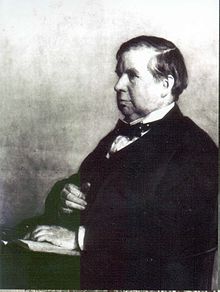Charles Whibley
| Charles Whibley | |
|---|---|

Charles Whibley, English writer and journalist
|
|
| Born | 9 December 1859 Sittingbourne, Kent, England |
| Died | 4 March 1930 Hyères, France |
| Occupation | Writer and journalist |
| Spouse(s) |
Ethel Whibley, née Ethel Birnie Philip (1896-1920) Philippa Whibley, née Philippa Raleigh (1927-1930) |
| Parent(s) | Ambrose Whibley and Mary Jean Davy |
Charles Whibley (1859–1930) was an English literary journalist and author. Whibley's style was described by Matthew as "often acerbic high-tory commentary". In literature and the arts, his views were progressive. He supported James Abbott McNeill Whistler (they had married sisters). He also recommended T. S. Eliot to Geoffrey Faber, which resulted in Eliot's being appointed as an editor at Faber and Gwyer. Eliot's essay Charles Whibley (1931) was contained within his Selected Essays, 1917-1932. Whibley died on 4 March 1930 at Hyères, France, and his body was buried at Great Brickhill, Buckinghamshire.
Whibley was born 9 December 1859 at Sittingbourne, Kent, England. His parents were Ambrose Whibley, silk mercer, and his second wife, Mary Jean Davy. He was educated at Bristol Grammar School and Jesus College, Cambridge, where he took a first in classics in 1883.
Charles Whibley's immediate family included his brother Leonard Whibley, who was Fellow of Pembroke College, Cambridge, from 1899–1910, and a lecturer in Classics (Ancient History). Charles also had a half-brother, Fred Whibley, copra trader, on Niutao, Ellice Islands (now Tuvalu), and a half-sister, Eliza Elenor, who was the wife of John T. Arundel, the owner of J. T. Arundel & Co. which evolved into Pacific Islands Company and later the Pacific Phosphate Company, which commenced phosphate mining in Nauru and Banaba Island (Ocean Island).
Whibley worked for three years in the editorial department of Cassell & Co, publishers. He shared a house with his brother Leonard Whibley, William Ernest Henley, and George Warrington Steevens.
...
Wikipedia
